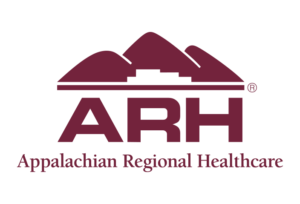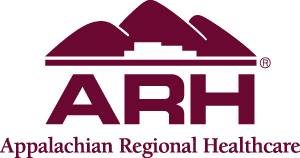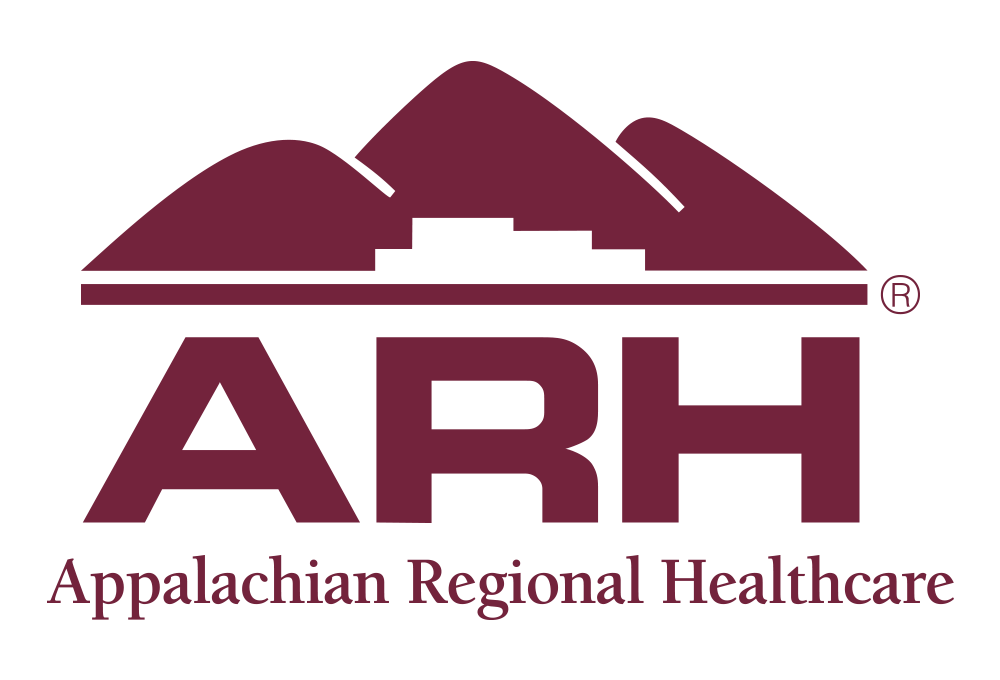
NEWS RELEASE – March 7, 2024
Get to Know ARH President & CEO Hollie Harris
LEXINGTON, Ky. – A cursory search of the internet lists Hollie Harris as the “first-ever female” chosen to lead Appalachian Regional Healthcare.
It’s a true descriptor, but not one Harris gives much thought.
“I’ve never really seen it as ‘boy vs. girl’ or ‘man vs. woman,’” says Harris, who has served as ARH President and CEO since April 2021. “There are opportunities that present themselves, and I’ve always believed the best candidate should be given those opportunities regardless of gender.”
That’s not to say Harris doesn’t recognize the importance of her position. She just doesn’t want it to define her.
And though she’s tasked with leading a multi-state health system and its 6,700 employees, Harris doesn’t want to be defined by her title either.
“I really want people to see me as someone they can talk to and approach,” she says. “I don’t want them to think of me as ‘the president and CEO.’
“I’m just Hollie.”
***
Growing up in Colonial Heights, Va., a suburb of Richmond, Harris planned to one day become a pharmacist.
“I’ve always really loved and excelled in math and science, and I had a cousin in pharmacy school, so it really interested me,” she recalls.
While majoring in biology at the University of Richmond, however, she soon discovered the business side of her economics minor was where her real interest lay.
When a friend helped her secure a summer internship at the Medical College of Virginia (MCV), she knew what she wanted to do.
“That’s when I saw the opportunity in healthcare and started down that path,” she says of her decision to attend graduate school at MCV.
A traditional graduate program consists of two years of classes, but MCV requires its students to also complete a one-year residency before graduation.
Harris’ residency took her to Nashville, Tenn., where she went to work for newly created Lifepoint Health.
“It had just spun out of HCA and become its own company, so I was like the 25th employee hired,” she recalls. “It was a really exciting time.”
Because Harris joined the team in the early days of the company, she found herself attending leadership and board meetings and reporting directly to the CEO.
“We had 23 hospitals, and I was involved in the operation of all 23,” she says, adding she believes she benefitted from joining the team just as the company took off. “It was probably a unique opportunity to have that very high level of system exposure at such a young age. I was allowed to do everything, and I just soaked it all in and learned from observing people and how they approached the business.”
Following her residency, Harris accepted a full-time position with Lifepoint, working in operation projects and strategic planning.
Though she enjoyed her time in Nashville, when a friend from graduate school told her about an opportunity with a healthcare system based in eastern Kentucky, she was intrigued.
“Susan Carmical (current ARH Vice President of Service Line Operations) was working at ARH and connected me to the COO, so I interviewed with him and took the job of director of strategic planning,” she says.
Harris had no experience with or much knowledge of Appalachia when she moved to Lexington, Ky., in 2001.
“I knew absolutely nothing about it,” she says with a laugh. “Growing up, we traveled to D.C., or south to the Carolinas or Florida. My experience with Kentucky before I moved here was I went to the Kentucky Derby one time. I had no experience with West Virginia.”
Nor did she have any experience working for an integrated healthcare delivery system.
“Lifepoint was purely a hospital company,” she says. “Working with ambulatory, home health and pharmacies was all new to me.
“That first year was eye-opening.”
And though she’s now been with ARH for 23 years, it took that entire first year with the company for Harris to decide to stay.
“Keep in mind, ARH was not financially stable when I first started,” she recalls. “It was a very fragile company. So as a new employe, there was a little bit of uncertainty.”
She says she considered several other opportunities during those early days and came close to accepting an offer in North Carolina.
“But I turned it down,” she says. “And I think, as I look back on it, it was because of the culture and the people I had really gotten to know and become involved with at ARH. The uniqueness of this culture has been very fulfilling. The values that people have here, you just don’t find anymore.”
***
Harris has worn many hats and seen just as many changes during her time with ARH.
Her ascent began quickly, as the VP of Strategy, to whom she was a direct report, left just six months after Harris joined the team. Because that position wasn’t replaced, Harris assumed the additional responsibilities and began reporting directly to the president.
Though she says that early transition was both scary and exciting, she’s grateful for the experience.
“I was given a lot of opportunities very quickly,” she says. “I felt he (former CEO Steve Hanson) respected me and had the confidence in me, at such a young age, to lead all the planning. That was a big role, and I don’t think I would be where I am today without that experience.”
Throughout her more than two decades with ARH, Harris has been tasked with many “big roles.” Three years after relocating to Lexington, she was promoted to vice president for corporate strategy and chief strategy officer. In the years that followed, she oversaw marketing, business development, service excellence, philanthropy, government relations and grants functions.
“I’ve had bosses throughout my career who have allowed me to explore the things I was interested in,” she says. “Really developing the service lines was a passion of mine and developing the ARH Rejuvenation Centers was a pipe dream of mine that I was able to make come to life.
“As I look back, I think that’s why I’m still here,” she continues. “I really feel like I’ve been given the opportunity to truly impact our patients’ lives and help the communities that we serve.”
Her biggest career opportunity, however, arose in 2021, when former ARH President and CEO Joe Grossman announced his retirement.
“By that point, I really felt I had the history and experience of all the things that had happened over the 20 years I had been with ARH,” she says of her decision to throw her hat into the ring. “I felt confident I could really help navigate the company through the changes and challenges ahead.”
Harris stepped into an immediate challenge as the world was entering its second full year of the Covid-19 pandemic in April 2021.
Then, in the summer of 2022, catastrophic flooding devastated eastern Kentucky and prompted an immediate all-hands response from the healthcare system.
“We saw there was no emergency management happening in the local communities,” she recalls. “They needed help, and we were blessed to have had the people on our team with the expertise to do so.”
Harris helped man the emergency response center, sorted and loaded supplies for distribution, and offered words of comfort and support to communities in crisis.
She says providing assistance was never in question.
“Our employees and our patients live in those communities,” she says. “They needed us, so we were there.”
She says she believes the response, which continues today as the ARH Foundation raises money for the still-recovering communities, has helped unite the system.
“We pulled together like a family pulls together in crisis,” she says. “And that’s a goal moving forward is to become stronger as a system so that each of our 14 different communities work together instead of operating in our individual silos.”
Working together, she says will help ARH deliver quality healthcare to one of the nation’s most challenged regions.
“We’ve got some of the sickest patients and it’s essential for us to work together – pooling our resources – to provide the best care possible.”
***
Establishing a top-tier senior leadership team was one of Harris’ main priorities when she assumed her role as president and CEO.
“Building a strong team was, and is, so important to me,” she says. “We need to have smart, capable leaders who truly understand the mission of ARH and I’m so happy to have such a great team in place.”
She says it’s important to her to ensure each of the system’s 6,700 employees know the faces of their leadership team and understand that their own individual roles – from nurses to housekeepers, dietary staff and on – are valued and that their voices are important.
It’s one of the reasons Harris is committed to regular visits to each of the 14 hospitals and communities they serve.
“I would spend every day out and about in our hospitals if I could,” she says. “Those are some of the very best moments I’ve had in this job.”
Through the Hub – ARH’s internal communications network – Harris regularly shares messages of praise and encouragement. She even opens up about struggles in her own life in hopes of encouraging others to act.
“I was 37 or 38 when I was diagnosed with cervical cancer,” she says of a message she has previously shared with ARH employees.
Regular screenings allowed for an early diagnosis and a positive outcome.
“I had a hysterectomy and I’m blessed to say I’m cancer-free,” she says. “I was very fortunate.”
Though she was young when diagnosed, it wasn’t her first encounter with cancer, as it took her father’s life when she was just 15.
“Cancer has impacted my whole life,” she says. “It’s probably, ultimately, the reason I’m in healthcare. I saw, firsthand, how horrible it is to go through that with a loved one. I think that’s why I am such an advocate of preventative screenings because I know they can save lives.
“They saved mine.”
***
Harris knows history will list her as Appalachian Regional Healthcare’s first female president.
“It’s just a fact that will always be out there,” she says.
It’s a fact of which she is proud. Yet it’s not how she hopes to one day be remembered.
“I think it’s more important to be seen as an effective CEO,” she says. “Someone who lived the mission of ARH and has led the organization and impacted our patients and our communities for the better.
And she hopes ARH’s employees – her coworkers – know they matter.
“Every employee needs to know that they have an opportunity to have a voice and to make an impact,” she says. “It’s important to me that they know we’re listening.”
And, she adds, it’s important to her that those employees see her as a person, and not just a title.
“I really don’t want someone calling me President or Mrs. Harris,” she says. “My name is Hollie. The only other title I have is mother. So, you either call me mom or you call me Hollie.
“That’s it.”
# # #
Appalachian Regional Healthcare (ARH), is a not-for-profit health system operating 14 hospitals in Barbourville, Hazard, Harlan, Hyden, Martin, McDowell, Middlesboro, Paintsville, Prestonsburg, West Liberty, Whitesburg, and South Williamson in Kentucky and Beckley and Hinton in West Virginia, as well as multi-specialty physician practices, home health agencies, home medical equipment stores and retail pharmacies and medical spas. ARH employs approximately 6,700 people with an annual payroll and benefits of $474 million generated into our local economies. ARH also has a network of more than 1,300 providers on staff across its multi-state system. ARH is the largest provider of care and the single largest employer in southeastern Kentucky, and the third-largest private employer in southern West Virginia.


